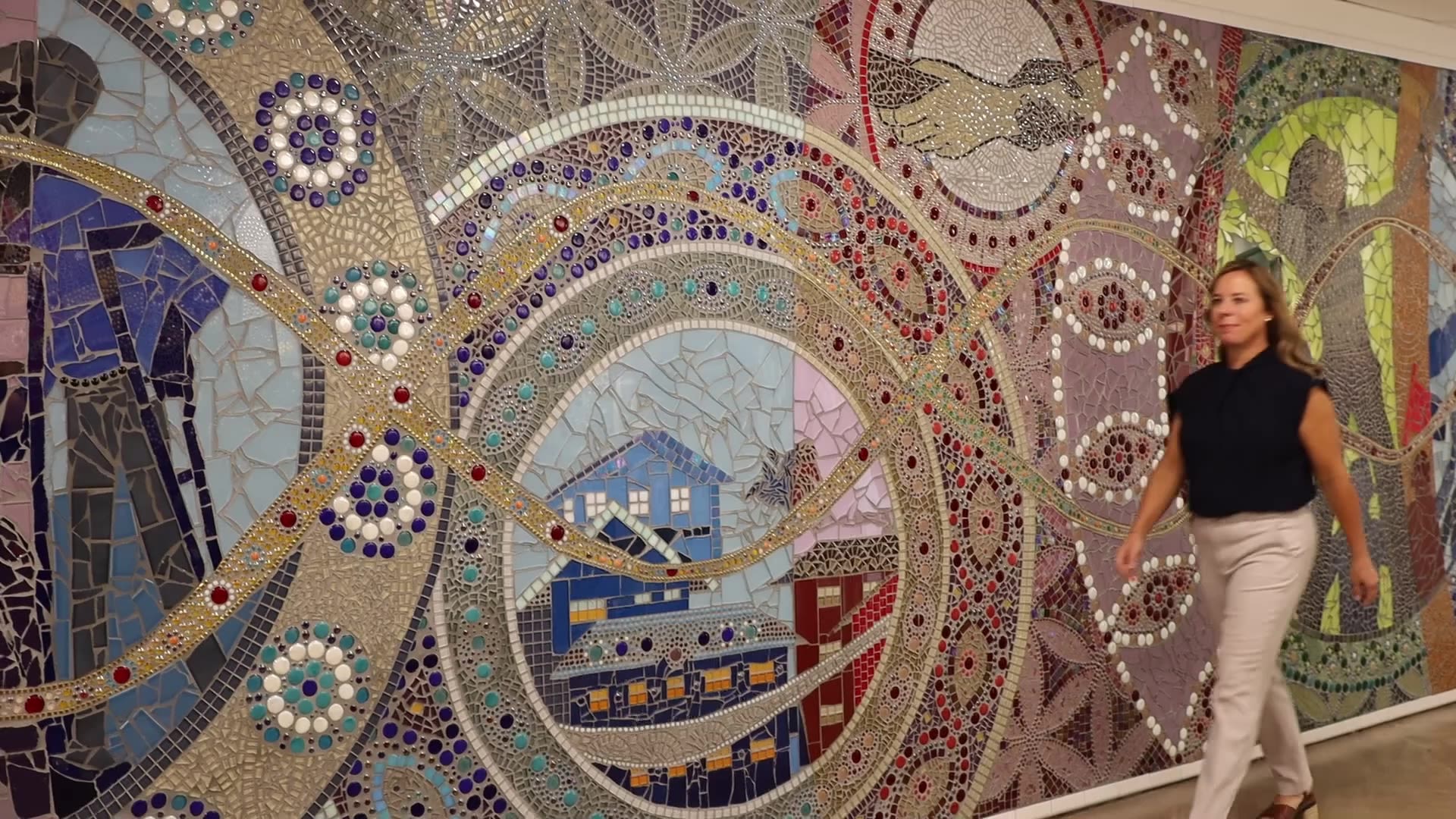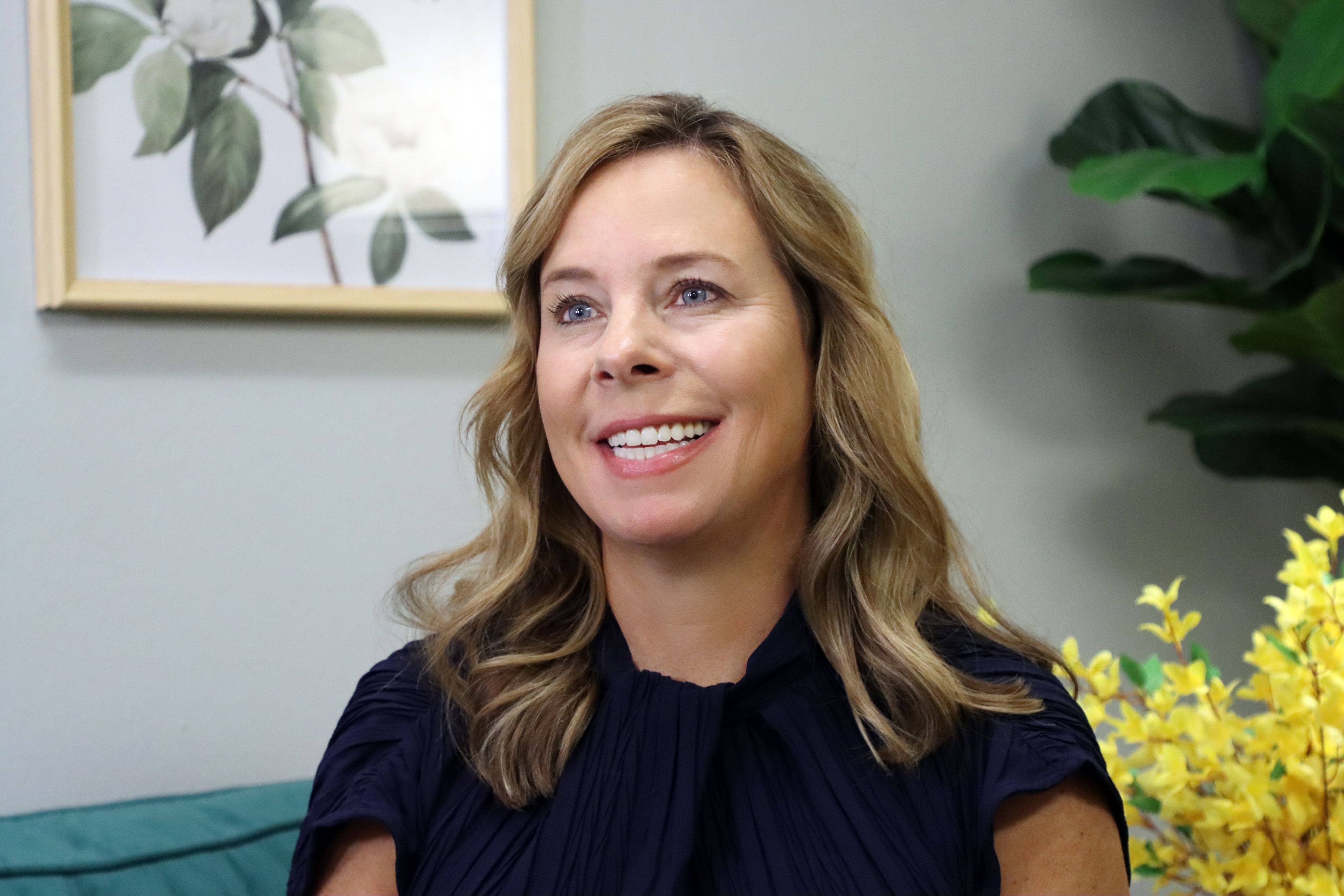THE VISION
THE VOICE
Meet the GCSW Deans

Ginger Lucas, a licensed master social worker, wears many hats at the Graduate College of Social Work (GCSW). In the Fall of 2024 Ginger transitioned into the role of Associate Dean of Academic Affairs. Ginger, who is also a clinical associate professor, brings a wealth of knowledge and experience to her roles.
As Associate Dean, Ginger oversees the Master of Social Work (MSW) program. Specifically focusing on the curriculum, which is divided into implicit and explicit sections. The implicit curriculum includes the general resources and programming provided to students, while the explicit curriculum focuses on the classroom experience.
“My job involves analyzing data to determine if our [entire] curriculum is meeting the needs of students and the community, then recommending and implementing changes to enhance it,” Ginger explains. The focus of her role ensures the curriculum evolves and supports the faculty in their teaching efforts.
For Ginger, the variety in her job is what she enjoys most, “I get to meet with students to work through their challenges, collaborate with faculty on innovative teaching ideas, and ensure we meet our accreditation standards. Each day is different, and I love being able to engage with so many people,” she says. Post-pandemic, Ginger values the renewed opportunity to build connections within the college and across campus, from community partners to other departments like athletics and the new medical school.
“We teach the foundational principles of social work practice, but we also recognize that these models need to evolve to meet the challenges of today’s society."
When asked what drew her to the field, Ginger shares that its holistic approach appealed to her, “Social workers tackle big societal problems, looking at how environmental, economic, and social factors impact communities and individuals. It’s complicated but inspiring, and I love that we don’t do it alone. Collaboration is key in creating change.”
According to her, the GCSW offers a forward-thinking approach to social work education, “We teach the foundational principles of social work practice, but we also recognize that these models need to evolve to meet the challenges of today’s society. Our faculty are committed to creating space for difficult conversations in the classroom—about racism, sexism, and other forms of oppression—to help students become advocates for social justice in their future careers.”
One of Ginger’s most memorable experiences at the GCSW came during a virtual class with MSW students. As the director of the college’s online program, she initially worried that students wouldn’t feel engaged in the video-centric virtual environment. However, during a group discussion she realized just how connected the students were, even remotely, “There were tears. I felt the deep connection between the students. That moment made me realize that meaningful relationships can be formed, no matter the distance,” Ginger recalls.
This sense of connection is further fostered by the cohort model used in both online and in-person programs at GCSW, which allows students to build lasting relationships they can rely on throughout their careers.
When it comes to her mission as a social work professional and program dean, Ginger emphasizes the importance of preparing students for social work practice by equipping them with the knowledge, skills, and experiences they need, “Supporting faculty in facilitating difficult conversations about oppression in the classroom is a big part of that.” By fostering a space for these conversations, Ginger believes GCSW is preparing students to be advocates of social justice.
Ginger’s passion for social work and her dedication to education shine through in everything she does at GCSW. Whether in the classroom or when meeting with students, she’s committed to fostering an inclusive, forward-thinking environment that prepares future social workers to tackle the challenges of today’s society.
Ginger draws inspiration from the people she encounters daily: the students and social workers who are out in the field doing difficult, often thankless work. But when reflecting on historical figures, she highlights Mary Church Terrell, a civil rights and women’s rights activist who addressed intersectionality long before the term was coined, “She’s on my mind because I recently taught a class about the history of social work, and her work is still incredibly relevant today.”




